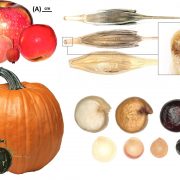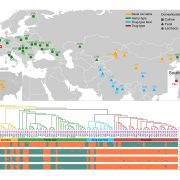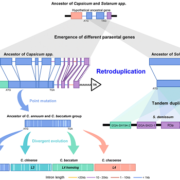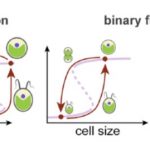The origin of land plants is rooted in two bursts of genomic novelty (Curr. Biol)
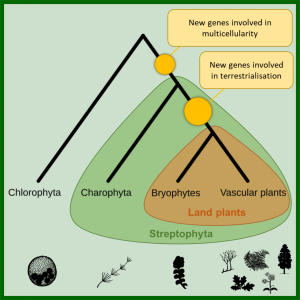 The transition of plants from water to land is one of the most momentous shifts in the history of life on Earth. 500 million years ago, the first land plants dramatically changed the environments on the planet, creating soils, rivers and the oxygen-rich atmosphere. However, the factors that enabled early plants to make the move on to land are not fully understood. Here, by comparing the complete gene sets of over 200 genomes, Bowles et al. demonstrate that two bursts of new genes helped plants make the move from water to land. These genetic innovations enabled the first land plants to protect their embryo, tolerate a range of environmental stresses and anchor themselves to the land. The origin of plants, which now dominate dry environments, was driven by the emergence of genes not seen in close algal relatives (Summary by Alex Bowles) Curr. Biol. 10.1016/j.cub.2019.11.090
The transition of plants from water to land is one of the most momentous shifts in the history of life on Earth. 500 million years ago, the first land plants dramatically changed the environments on the planet, creating soils, rivers and the oxygen-rich atmosphere. However, the factors that enabled early plants to make the move on to land are not fully understood. Here, by comparing the complete gene sets of over 200 genomes, Bowles et al. demonstrate that two bursts of new genes helped plants make the move from water to land. These genetic innovations enabled the first land plants to protect their embryo, tolerate a range of environmental stresses and anchor themselves to the land. The origin of plants, which now dominate dry environments, was driven by the emergence of genes not seen in close algal relatives (Summary by Alex Bowles) Curr. Biol. 10.1016/j.cub.2019.11.090


